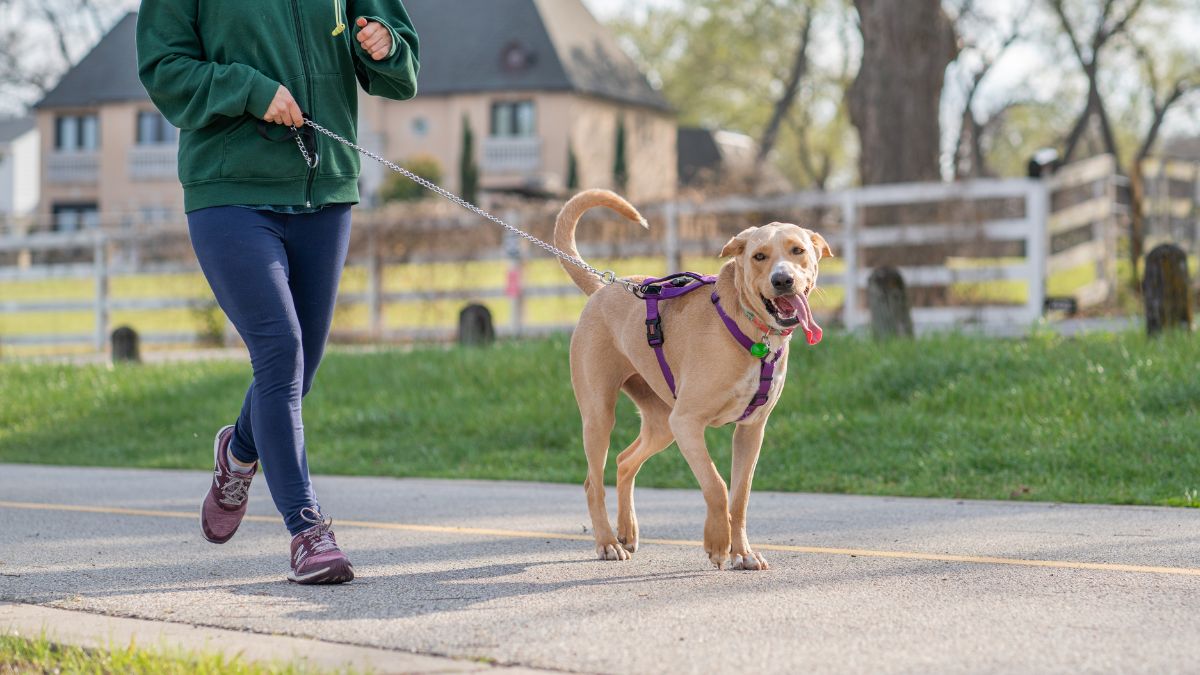Admit it, stress is a common experience for many of us. Whether it’s the pressures of school, work, finances, or just managing daily stressors, it’s something we all face. For some, getting a dog is a way to stay occupied or fill a void in our lives.
Dogs are great stress relievers! They often make us laugh, and we love them for that. But as much as they play the role of happy pills, your dogs can detect stress from your scent and it affects their mood and choices also.
Researchers from the University of Bristol conducted a study on how the smell of a stressed human can affect a dog’s way of learning, and evidence proved how it unknowingly affects the emotions and choices of others made around them. But of course, it is important to understand your relationship with your pets first.
Decoding Dogs and Humans
Naturally, humans and dogs establish a working relationship with each other, especially in the old days. They provide humans with acts of their services, such as hunting or guarding, where they protect their “masters” or owners from harm. This is where a dog develops their senses and feelings towards their owners.
In the modern days, when humans began moving into more secure indoor areas, dogs became more attached than ever, never wanting to live their owners’ side. In fact, this is the reason why dogs know their owners well, as they can sense when they are happy, sad, leaving, and even stressed. Take this scenario: If you are living together with another person who is always irritated and stressed, then what does it make you? It’s the same thing with dogs.
For humans, mimicking another person’s emotions is called emotional contagion, as they express or experience what that other person is feeling. There are suggestions that we inhale the energy that we’re surrounded with, so researchers wanted to test if it’s the same case with dogs as well.
RELATED: Your Dog’s Bark is a Language We Will Soon Understand
Detecting Human Stress
Putting their question to the test, the researchers used ‘optimism’ or ‘pessimism’ in determining the measurement of a dog’s choices. Optimism translates to positive emotions, while pessimistic choices lead to negative feelings.
18 dogs with their owners were made as subjects to take part in a special project where different human smells were present. The dogs were trained to distinguish a food bowl placed in one specific place that contained a treat and another spot where it did not. Once the dog learns about its differences, they will approach the bowl with a treat faster.
The team then tested how dogs would approach food bowls in new locations that were positioned between the original bowl placements. A quick approach translates to a dog’s optimism about whether food is present in new locations. It’s a sign of a happier emotional condition. While a slower approach shows the opposite which is pessimism or a sign of negative emotions.
These trials were repeated with each dog exposed to the presence of different odors, such as no odor, sweat, and breath samples from a stressed human subjected to taking a math test and breath and test samples from a more relaxed person listening to soothing nature sounds.
Now, how can this test be linked to dogs being able to detect human stress? The researchers observed that the scent of a stressed person slowed a dog’s approach to the bowls in new locations. On the other hand, the more relaxed smell didn’t have an effect on the dog’s reaction. The stress scent has increased a dog’s expectations that the new location did not have any food, same with the empty bowl placed nearby.
The research states that the pessimistic response has reflected a negative and down emotional state. It may possibly be a way for dogs to stop their energy from flowing and avoid disappointments if they do not think that a treat is present.
RELATED: Decoding Your Dog’s Body Language
Stress Management For Dogs
Challenges in our lives come and go, and sometimes, we may unknowingly transfer our energies to our dogs. Now that we understand this process better, we now know whether our dogs feel stressed.
But we wouldn’t want our dogs to feel discomfort, don’t we? We have listed down some tips that could help them in stress management:
- Safety Comes First – If your dog attempts to run away caused by a stress trigger, move them to a secured location. If they showed aggression, they should be kept away from any potential targets. Note that their secured locations must be comfortable so their stress levels won’t increase.
- Don’t Punish Your Dog When Showing Signs of Stress – Dogs have feelings, too, and punishing them, such as shouting, will likely increase their stress levels.
- Identify Potential Triggers – It is best to know what triggers the stress of your dog. While some of them may be unavoidable, like thunderstorms, learn to minimize their contact by being with them in a room where you can minimize the sound of thunder.
- Feed Your Dog With Clinical Nutritious Food – It is best to ask your dog’s veterinarian what dietary changes to include in your dog’s meal to help them with stress-related digestive problems.
- Consider Lifestyle Changes – Start creating a routine for your dog by adding exercise to their day no matter how busy you are. Even just a simple walk around the neighborhood would help them maintain a healthy digestive system. Incorporating this in your everyday routine would be beneficial for both you and your dog and at the same time, improve your relationship with each other.
While all of these tips apply to your pets, it is important to also manage your own stress, especially when you are a pet owner. Remember that you are their only hope, and if you’re not alright, this will affect their mood and choices, as proven by scientific research. Don’t rely fully on your dogs, be each other’s happy pill.


